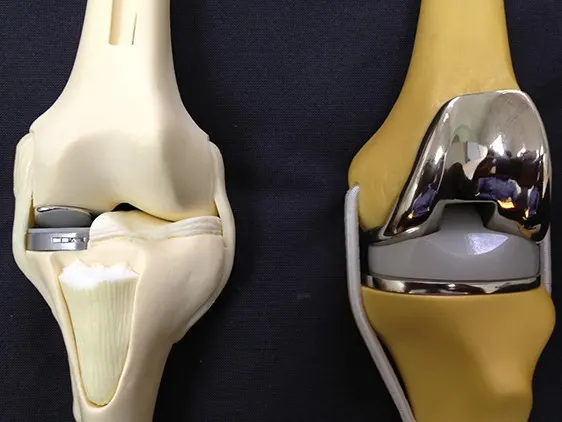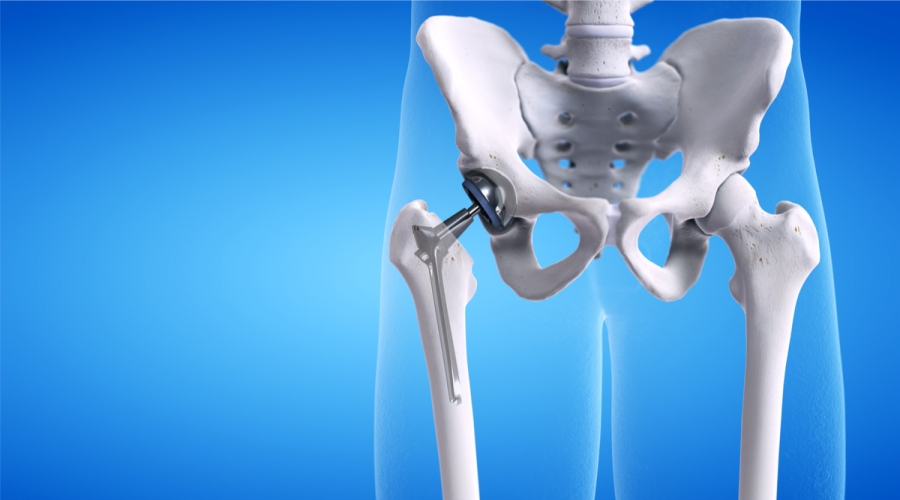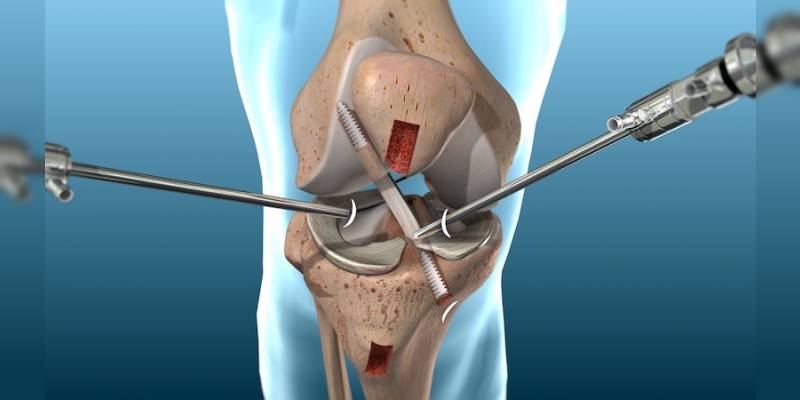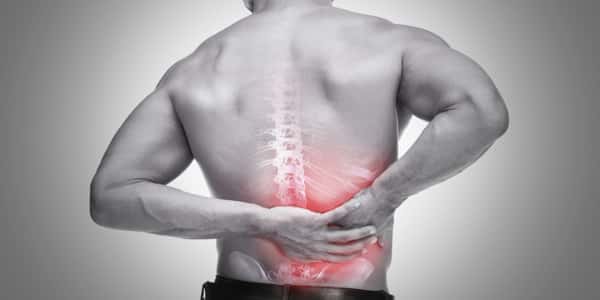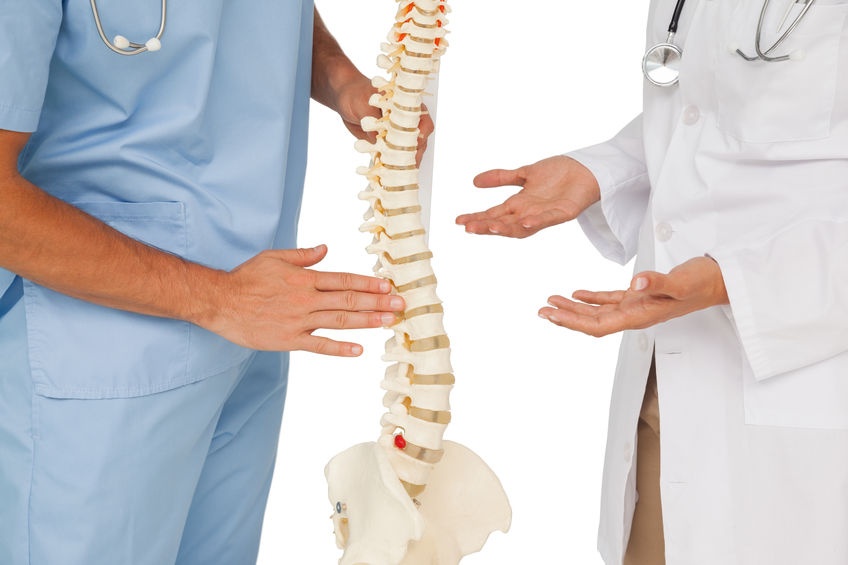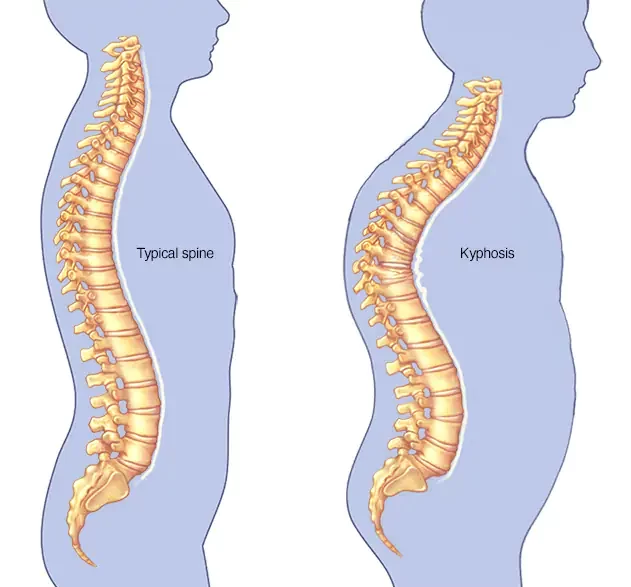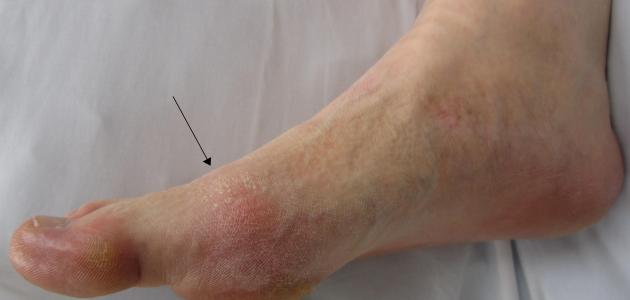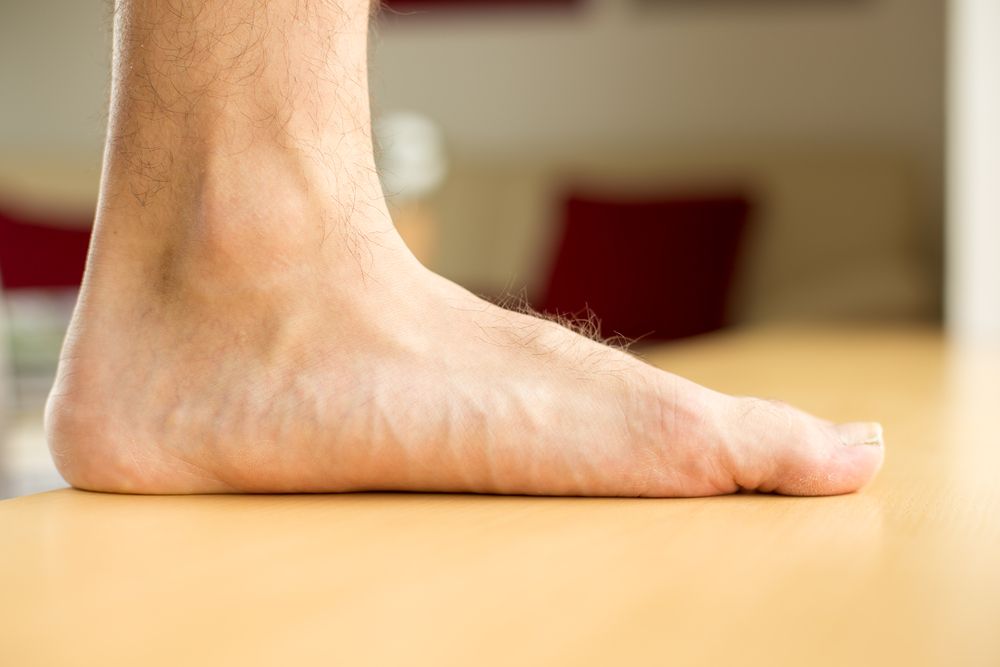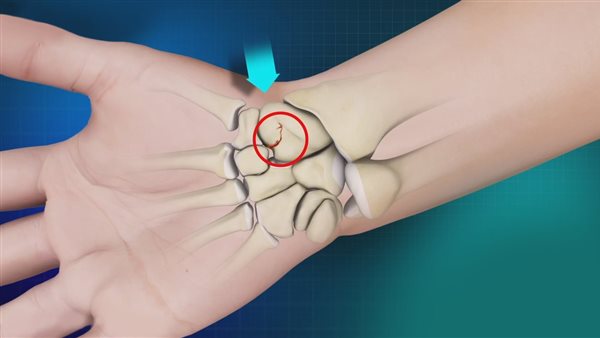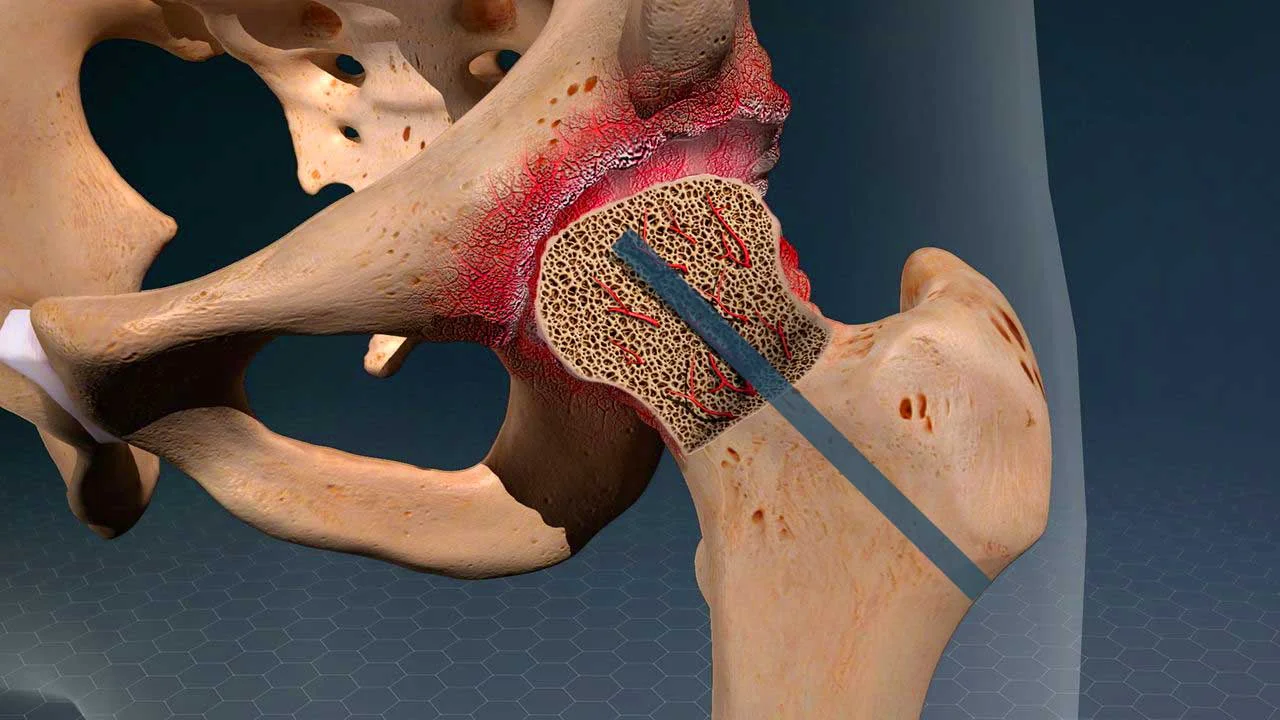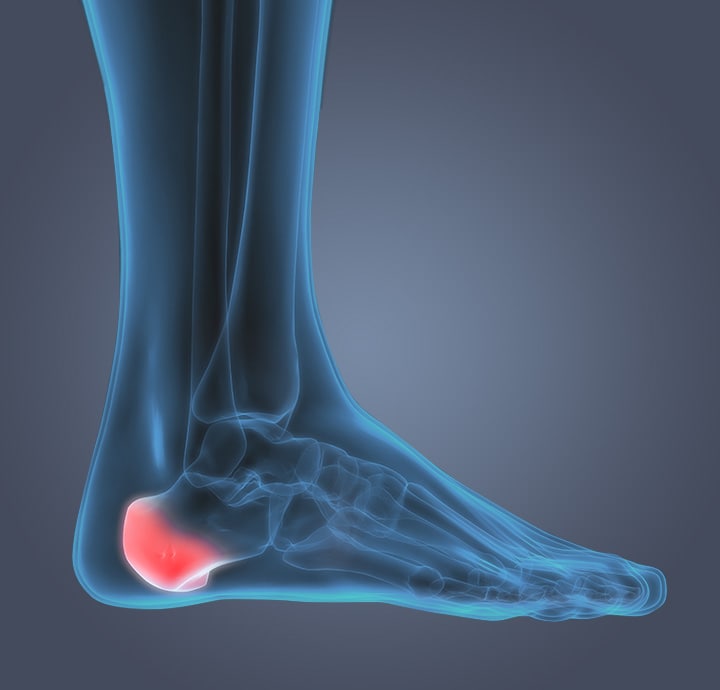Can calcium deficiency cause neck pain? And what prevents calcium absorption in the body?
Does Calcium Deficiency Cause Neck Pain?
Calcium is an essential mineral for the body’s health, playing a crucial role in building bones and teeth, regulating heartbeats, transmitting nerve signals, and blood clotting. Calcium deficiency in the body is one of the most common deficiencies, and it can cause numerous troubling symptoms.
Although bones are natural reserves for calcium, a deficiency in calcium can affect muscles and nerves and cause pain in various parts of the body, including the neck.
If there is a deficiency or decrease in the body’s calcium levels, several symptoms may occur, including fatigue, muscle pains, irregular heartbeats, and memory loss. Some may experience muscle cramps in the case of acute calcium deficiency, while chronic calcium deficiency can lead to bone softening, resulting in weakened bones and an increased risk of fractures.
As for neck pain, it can result from several factors, including stress, anxiety, muscular pain, and arthritis. Although there is no direct link between calcium deficiency and neck pain, in the case of a severe deficiency in calcium levels, it can affect the muscles and nerves in the area, causing pain and tension in the neck.
To maintain healthy calcium levels in the body, it is recommended to consume foods rich in calcium such as dairy products, yogurt, cheese, fish, nuts, and legumes. Calcium absorption can also be enhanced by consuming vitamin D and maintaining a healthy lifestyle that includes daily exercise and exposure to sunlight.
If you are suffering from persistent neck pain or any abnormal symptoms, it is important to consult a doctor to assess your condition and determine the potential cause and prescribe the appropriate treatment. Any symptoms should not be ignored, and appropriate medical care should be sought.
How do I know if I am suffering from calcium deficiency?
Calcium deficiency is a common health issue that can affect various systems and functions in the human body. To determine if you are suffering from calcium deficiency, you can notice certain signs and symptoms that may appear. Here is a detailed list explaining how to recognize calcium deficiency:
- Difficulty Swallowing: You may experience difficulty swallowing or spasm of the throat and esophagus muscles. This sign indicates the possibility of muscle spasms due to a calcium deficiency in the blood.
- Muscle Pains: You may suffer from muscle pains and cramps as the condition of calcium deficiency progresses. You might feel pain in your thighs and arms or experience pain while walking or moving.
- Depression and Forgetfulness: Calcium deficiency can lead to mental confusion, depression, and forgetfulness. If you are having difficulty concentrating or suffer from mood swings and memory changes, this could be due to a lack of calcium. Tingling in Lips, Fingers, and Toes: You might feel tingling or numbness in the lips, fingers, and toes. This sign could be a result of low calcium levels in the blood.
- Contraction and Cramping of the Calf Muscle During Sleep: You might experience contraction and cramping of the calf muscle while sleeping. If you frequently suffer from this condition, it could be due to calcium deficiency.
- Bone Fragility: Reduced bone mass is one of the main signs of calcium deficiency. If you suffer from osteoporosis or an increased chance of bone fractures, this could be a result of a lack of calcium.
- Dental Cavities: Calcium deficiency may lead to weakened teeth and the appearance of cavities. If you frequently have falling teeth or feel pain in your teeth, this could be due to a calcium deficiency.
If you are experiencing any of these symptoms, it is important to consult a doctor to confirm the diagnosis and receive the appropriate treatment. The doctor can perform blood tests to measure calcium levels and determine the proper treatment for your condition.
Does Joint Cracking Indicate a Calcium Deficiency?
Joint cracking is a common phenomenon that many people experience. Since calcium plays an important role in the health of bones and joints, some might wonder if joint cracking indicates a calcium deficiency in the body.
The truth is that there are many factors that may cause joint cracking, and it may have no relation to calcium deficiency. Studies conducted on a number of individuals have shown that there is no correlation between joint cracking and a calcium deficiency in the body.
Despite this, calcium deficiency conditions can affect bone density, which might increase the likelihood of joint cracking. When bone density is low, bones become brittle and weak, which can increase the possibility of cracking during sudden movements or sitting.
However, it should be noted that joint cracking is not necessarily an indicator of calcium deficiency in the body. There could be other reasons for this phenomenon, such as the accumulation of gases in the joints or the wear and tear of joint cartilage.
So, if you are experiencing joint cracking and suspect a calcium deficiency, it’s important to consult a specialist doctor. The doctor will conduct the necessary examinations and analyses to determine the cause of joint cracking and decide on the appropriate treatment if there is a calcium deficiency or not.
In general, it is essential to consume adequate amounts of calcium and maintain the health of bones and joints. Calcium can be obtained from dietary sources such as dairy, fish, nuts, and leafy vegetables.
Therefore, you should pay attention to calcium intake and take care of the health of bones and joints in general. And if you have any concerns or questions, do not hesitate to consult a specialist doctor to get the correct diagnosis and appropriate treatment.
What is the cause of sudden calcium deficiency?
Here is a list containing reasons for sudden calcium deficiency:
- Pseudohypoparathyroidism: Occurs when the body secretes an excess amount of parathyroid hormone, leading to elevated calcium levels in the blood and activation of thyroid gland cells. This sudden rise can lead to a calcium deficiency in the body.
- Hypomagnesemia: Magnesium is an important part of the calcium absorption process in the body. When there is a deficiency in blood magnesium levels, it can affect the absorption of calcium and lead to its deficiency.
- Hypermagnesemia: Conversely, an elevated level of magnesium in the blood can inhibit calcium absorption. This sudden rise can lead to a calcium deficiency in the body.
- Consuming tea immediately after meals: Drinking tea directly after meals can affect the body’s absorption of calcium. Tea contains compounds called tannins, which may interact with calcium and reduce its absorption.
- Taking certain medications: Some medications, such as those treating stomach inflammations and reducing acid, can affect calcium absorption in the body and lead to its deficiency.
- Hypoparathyroidism: When there is a decrease in the level of parathyroid hormone, it can affect the calcium absorption process in the body and lead to its deficiency.
- Vitamin D deficiency: Vitamin D is essential for the absorption of calcium in the body. When there is a deficiency in vitamin D levels, it can affect calcium absorption and lead to its deficiency.
- Kidney and liver disorders: Some diseases that affect kidney and liver function can lead to calcium deficiency in the body. These diseases may affect the calcium absorption process or increase its loss in urine.
It is necessary to consult a doctor to diagnose and treat sudden calcium deficiency, as it can have negative effects on the health of bones, teeth, and other body functions.
How to Increase Calcium Levels?
Calcium is one of the essential elements that the human body needs to maintain healthy bones and teeth. Losing a sufficient amount of calcium may increase the rate of bone thinning and lead to serious health problems. If you suffer from a calcium deficiency in your body, here are some ways you can follow to increase your calcium levels:
- Consume calcium-rich foods: Include foods rich in calcium in your daily diet. These foods include milk and its derivatives such as cheese and yogurt, fish such as salmon and sardines, and leafy vegetables such as spinach and cabbage. Remember to eat these foods regularly to get an adequate amount of calcium.
- Take dietary supplements: If you cannot get enough calcium from food alone, you can take dietary supplements. Some supplements contain a high amount of calcium and vitamin D, which helps increase the absorption of calcium in the body.
- Get enough Vitamin D: Vitamin D plays an important role in the absorption of calcium. You can get vitamin D from direct sunlight exposure for a short period daily. You can also eat foods rich in vitamin D such as fatty fish, egg yolks, and vitamin-fortified drinks.
- Exercise: Regular exercise is one of the best ways to maintain healthy bones. Physical activities such as walking and weightlifting stimulate the growth of bone cells and strengthen bones.
- Avoid factors that cause calcium deficiency: Avoid consuming excessive amounts of caffeine and sodium, as they are factors that cause calcium deficiency in the body. You should also refrain from smoking and reduce alcohol intake, as they negatively affect calcium absorption.
- Consult a doctor: If the calcium level in your body does not improve after following the above measures, it is advisable to consult a doctor. The doctor may perform tests to determine the level of calcium in your body and prescribe appropriate treatment if necessary.
It is important to pay attention to raising the calcium level in your body to maintain bone health and prevent serious health problems. Make sure to consume the right amount of calcium and vitamin D and exercise regularly to maintain strong bones and good health.
What prevents calcium absorption in the body?
Here is a list that includes several factors and habits that can affect calcium absorption in the body:
Consumption of phosphates: Phosphates found in many soft drinks and sports drinks have properties that inhibit calcium absorption in the small intestine. Therefore, it is preferable to avoid consuming these drinks in large quantities.
Vitamin D Deficiency: Vitamin D is essential for the absorption of calcium in the body. Vitamin D can be obtained from sunlight and certain foods such as canned salmon and egg yolks. It is advised to consult with a doctor to determine if you need Vitamin D supplementation.
High Levels of Caffeine: Consuming caffeine in large amounts can affect the absorption of calcium in the body. It is preferable to reduce the consumption of caffeine-containing beverages like coffee and tea.
Lack of Stomach Acidity: If you suffer from a lack of stomach acidity, this can affect the absorption of calcium. It is preferable to consult a doctor to assess the level of stomach acidity and take necessary measures.
Alcohol Consumption: Consuming alcohol in large quantities can affect the absorption of calcium in the body. It is preferable to reduce alcohol consumption or avoid it entirely.
Lack of Physical Activity: A lack of physical activity can affect the absorption of calcium in the body. It is advised to regularly practice physical exercises to enhance calcium absorption.
Fiber-Rich Foods: Some fiber-rich foods like whole grains and legumes may contain compounds that hinder the absorption of calcium. It is preferable to consume these foods regularly and in moderate quantities.
Oxalate-Rich Foods: Oxalates are compounds found in some foods like chocolate, tea, and spinach, which can hinder the absorption of calcium. It is preferable to consume these foods in moderation and balance them with other sources of calcium.
It is important to follow a healthy lifestyle and consume a variety of foods rich in calcium, and adhere to the previous advice to improve calcium absorption in the body. Before making any changes to your diet or lifestyle, it is preferable to consult a doctor or a nutrition specialist.
Does calcium deficiency cause muscle cramps?
Calcium deficiency in the body is a primary cause of muscle cramps. Calcium is responsible for muscle balance in the body, and when there is a deficiency in calcium levels, there is continuous activation of nerve cells. This continuous activation leads to muscle spasms and cramps.
Muscle spasms are common symptoms of calcium deficiency in the body and often occur at night. The spasm usually happens in the arms and thighs and may be accompanied by a feeling of pins and needles in the lips, fingers, and feet.
In addition, long-term calcium deficiency can lead to confusion, memory loss, muscle spasms, numbness in the hands, feet, and face, as well as depression.
Other signs of calcium deficiency in the body include severe fatigue and weakness, which accompany the fatigue associated with calcium deficiency along with brain fog, dizziness, vertigo, confusion, and difficulty concentrating. This may be due to the need for calcium by muscle fibers and nerves.
You may experience muscle, joint, and bone pain, accompanied by muscle weakness.
Furthermore, you might feel a burning sensation around the mouth and fingers, and suffer from severe fatigue and a general feeling of lethargy.
To prevent calcium deficiency and avoid muscle cramps, it is advised to consume calcium-rich foods such as milk and its dairy products, yogurt, cheese, fish, and nuts. Calcium absorption can also be enhanced by taking Vitamin D, which aids in the body’s absorption of calcium.
Do not hesitate to consult a doctor if you are experiencing symptoms of calcium deficiency, as they can diagnose the condition and prescribe appropriate treatment to boost calcium levels in the body and reduce muscle cramps.
Where is calcium found in food?
Here is a comprehensive list that contains some of the rich sources of calcium in food:
Milk and dairy products:
- Regular milk: One cup of regular milk contains about 300 mg of calcium.
- Yogurt: One cup of yogurt contains about 400 mg of calcium.
- Cheese: Both hard and soft cheese contain moderate amounts of calcium.
Fish:
- Sardines: High in calcium, one cup of canned sardines can provide about 350 mg of calcium.
- Salmon: Contains a moderate amount of calcium, where about 180 mg of calcium can be obtained from 100 grams of cooked salmon.
Dark leafy vegetables:
- Spinach: Contains a good amount of calcium, where about 250 mg of calcium can be obtained from one cup of cooked spinach.
- Kale: Also contains a good amount of calcium, with about 180 mg of calcium from one cup of cooked kale.
Nuts and Seeds:
- Chia seeds: High in calcium, one cup of chia seeds can provide about 600 mg of calcium.
- Almonds: Contain a good amount of calcium, with about 75 mg of calcium obtainable from a quarter cup of chopped almonds.
Fruits and Juices:
- Oranges: Contain a moderate amount of calcium, where about 60 mg of calcium can be obtained from one cup of orange juice.
- Dates: Contain a moderate amount of calcium, with about 15 mg of calcium obtainable from 5 dates.
Note that it is preferable to consume calcium with sufficient amounts of vitamin D to enhance the body’s absorption of calcium. You should consult a doctor or a dietitian to determine the appropriate dosage of calcium and vitamin D according to your personal needs.
Where is calcium found in herbs?
Herbs are a natural and effective source of calcium. Here is a list of some herbs that contain high levels of calcium:
- Cloves: Contain a high level of calcium, where about 1000 mg of calcium can be provided from every 100 grams.
- Cinnamon: Contains a moderate level of calcium, with about 100 mg of calcium provided from every 100 grams.
- Peppermint: Contains an acceptable level of calcium, where about 200 mg of calcium can be provided from every 100 grams.
- Parsley: Contains a good level of calcium, where about 200 mg of calcium can be provided from every 100 grams.
- Wild mint: Contains a high level of calcium, with about 200 mg of calcium provided from every 100 grams.
- Dark green leaves: Dark green leaves like spinach and green cabbage contain high levels of calcium, where about 150 mg of calcium can be provided from every 100 grams.
Dill: Dill contains a moderate amount of calcium, providing about 100 mg of calcium per 100 grams. Wild Parsley: Wild parsley has a high level of calcium, offering about 200 mg of calcium per 100 grams. Thyme: Thyme contains a moderate level of calcium, with about 100 mg of calcium per 100 grams. Nettle: Nettle is high in calcium, providing about 300 mg of calcium per 100 grams.
These herbs are considered an excellent choice for naturally increasing calcium levels in the body. You can use them in cooking or prepare herbal teas to fully benefit from their nutritional advantages.
Does a vitamin D deficiency cause pain in the thigh?
Vitamin D deficiency is a common condition that affects many people worldwide. One of the common symptoms of vitamin D deficiency is pain in the thigh. Individuals suffering from a vitamin D deficiency may experience sharp pain on the right side of the thigh, which can extend to the leg and foot. This intense pain can cause difficulty in performing daily tasks.
Medical studies indicate that a lack of vitamin D can lead to muscle weakness and bone pain. Those with a vitamin D deficiency might experience acute pain in various body areas, including the back, hips, pelvis, and thighs. Vitamin D is one of the essential nutrients for muscle health, playing a crucial role in maintaining muscle strength and health.
To treat vitamin D deficiency and relieve thigh pain, doctors recommend taking vitamin D supplements after consulting a healthcare provider. The level of vitamin D in the body can be adjusted by taking an appropriate dose of a vitamin D3 injection, such as 300,000 international units or 200,000 international units.
Although vitamin D plays an important role in muscle health, it is not considered a cure for depression or heart diseases. You may feel an improvement in thigh pain after taking vitamin D supplements, but it is essential to consult a doctor to evaluate the condition and determine the appropriate treatment.
In conclusion, it’s important to maintain vitamin D levels in the body to preserve muscle and bone health. If you are experiencing thigh pain or any other symptoms associated with vitamin D deficiency, it is advisable to visit a doctor for a diagnosis and proper treatment guidance.
Does sesame contain calcium?
Sesame is a rich source of calcium, an essential mineral that plays an important role in the health of bones and teeth. If you are looking for ways to increase the amount of calcium in your diet, adding sesame can be a good option. Here are some interesting facts about sesame and the amount of calcium it contains:
- High calcium content: Sesame contains a high proportion of calcium. Just one tablespoon of sesame seeds contains a significant amount of the calcium required for the human body.
- Bone health support: Calcium helps in building and strengthening bones, and thus can be beneficial in preventing osteoporosis and various bone diseases.
- Hormonal balance improvement: Sesame plays a role in regulating hormonal balance in women’s bodies, due to its high content of vitamin B1, vitamin B6, and calcium.
- Reduction of arthritis inflammation: Sesame contains calcium that can help in reducing inflammation and joint pain.
- Rich source of other minerals: In addition to calcium, sesame also contains copper, magnesium, and zinc, which are other important minerals for the health of the body.
- Other health benefits: Sesame is also beneficial in eliminating intestinal worms, relieving body pain, and removing pus formation.
Considering these amazing benefits, it can be said that sesame is a rich and beneficial source of calcium and many other minerals. You can include sesame in your diet by adding it to salads, soups, sauces, or even as a healthy snack. Enjoy the benefits of sesame and enhance your overall health.


